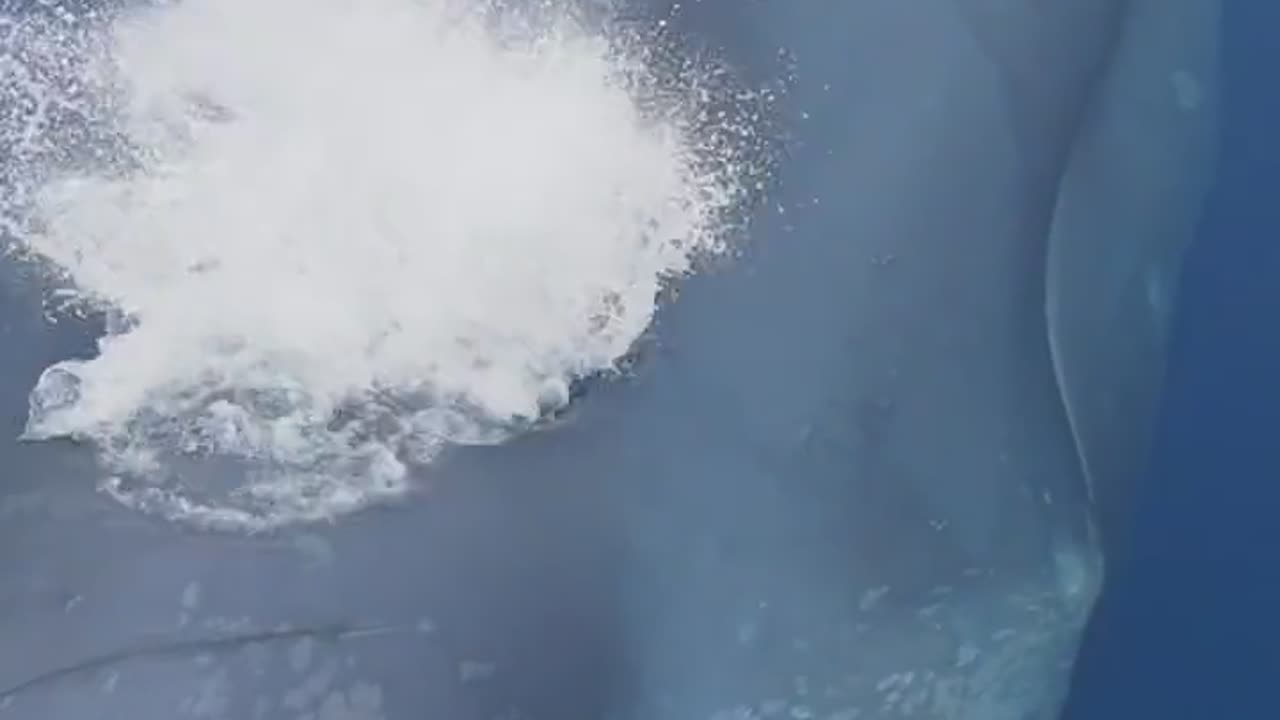Premium Only Content

Whale Unique Respiratory System
The whale has a unique respiratory system that allows it to remain underwater for long periods of time without taking in oxygen
When it rises to the surface of the water, it fills its lungs with fresh air
After each breath, the blowhole is closed by strong muscles so that water does not enter the lungs.
The unique respiratory system of whales is a fascinating adaptation that allows these marine mammals to thrive in their underwater environments. Here's a brief overview:
Blowhole: Whales breathe through a specialized nostril called a blowhole, located on the top of their heads. Unlike most land mammals that breathe through their mouths and noses, whales only breathe through their blowholes.
Lungs: Whales have large, highly efficient lungs that can hold a substantial amount of air. These lungs allow them to take in a sufficient oxygen supply when they surface to breathe.
Diving Abilities: Whales can hold their breath for extended periods. The duration varies among species, with some whales capable of remaining submerged for up to an hour or more. This remarkable breath-holding ability is vital for hunting, escaping predators, and exploring the depths of the ocean.
Blowhole Mechanism: When a whale surfaces, it exhales forcefully through its blowhole, expelling a spout of air and moisture. The moisture in this spout comes from the water droplets in the whale's respiratory system.
Muscular Control: Strong muscles around the blowhole allow whales to open and close it rapidly. After taking a breath, the blowhole is tightly closed to prevent water from entering the respiratory passages.
Countercurrent Exchange: Whales have a countercurrent exchange system in their circulatory system. This mechanism helps conserve oxygen by efficiently distributing it to the vital organs and muscles, even during deep dives when oxygen is scarce.
Myoglobin: Whales have high levels of myoglobin, a protein that stores oxygen in their muscles. This helps sustain their oxygen needs during extended dives.
Slow Heart Rate: While diving, a whale's heart rate can slow significantly to conserve oxygen. This adaptation allows them to make the most of their oxygen supply while submerged.
Overall, the unique respiratory system of whales is a marvel of evolution, enabling these magnificent creatures to thrive in the ocean's depths and emerge at the surface to breathe without taking in seawater.
-
 LIVE
LIVE
Roseanne Barr
59 minutes agoHow To Win The Culture War W/ Ami Kozak | The Roseanne Barr Podcast #103
2,468 watching -
 2:13:58
2:13:58
Tucker Carlson
1 day agoJeffrey Sachs: Ukraine/Russia Dangerous New Escalation, & the Dark Forces Pushing for War With Iran
82.7K137 -
 LIVE
LIVE
LFA TV
15 hours agoLFA TV ALL DAY STREAM - THURSDAY 6/12/25
2,328 watching -
 LIVE
LIVE
WTFLeagues
1 hour agoWTF Leagues Live
230 watching -
 LIVE
LIVE
Akademiks
4 hours agoDiddy Trial Day 22: Jane Doe aka 50 Cent Baby Moms Cross Examine. ALLSTAR FREEKOFF Day 4/30
2,232 watching -
 1:25:54
1:25:54
Russell Brand
2 hours agoWatch With Us: MK Ultra – CIA Mind Control Exposed - SF596
83K27 -
 LIVE
LIVE
Tommy's Podcast
14 hours agoEstrogen Based Warfare | E.M. Burlingame & Tom Luongo (TPC #1,765)
557 watching -
 11:45
11:45
IsaacButterfield
10 hours ago $0.19 earnedThe Project Is CANCELLED! The New Black Panther Is WHITE and Comedian Jailed for 8 YEARS
9801 -
 10:37
10:37
Professor Gerdes Explains 🇺🇦
17 hours agoMcConnell to Pentagon: ‘America’s Reputation Is On the Line in Ukraine
361 -
 1:01:49
1:01:49
Sean Unpaved
2 hours agoTeeing Off & Taking Charge: U.S. Open Kicks Off, Carlie Irsay-Gordon Leads Colts from the Sidelines
25.6K1